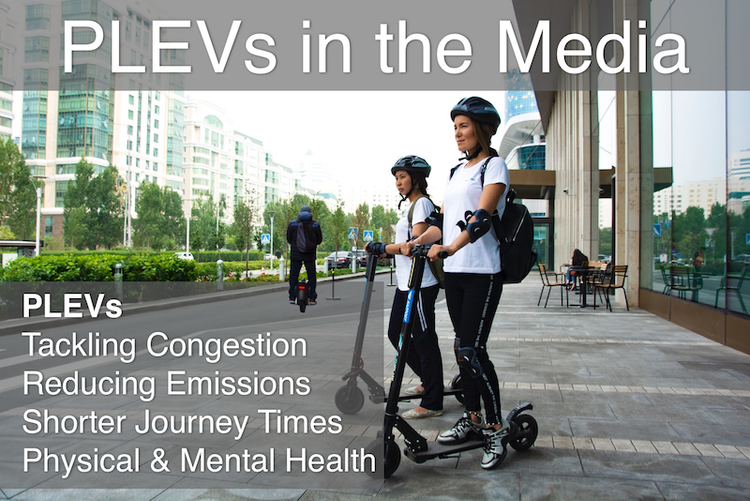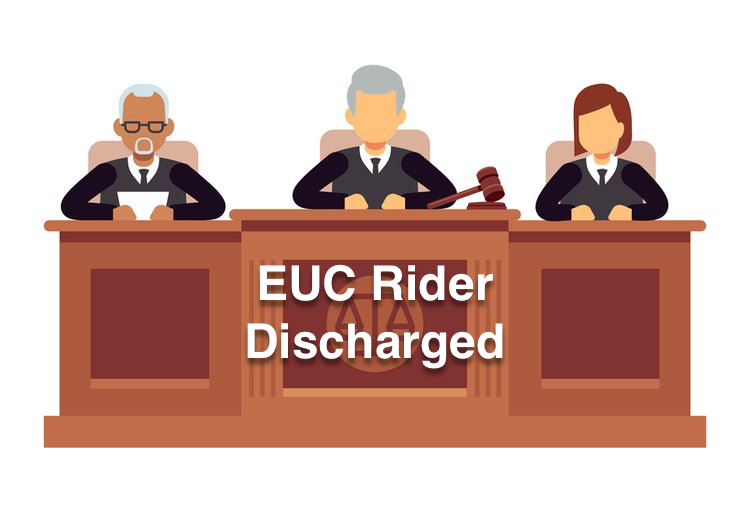Personal Light Electric Vehicles (PLEVs) including Electric Scooters, Electric Unicycles and Electric Skateboards are powered by lithium ion batteries and have become a common sight in many UK cities, offering a convenient and environmentally friendly way to travel short distances for both able bodied people and people with disabilities.
However, in the United Kingdom, their legal status remains a contentious issue. Despite their popularity, privately owned electric scooters (PLEVs) remain technically illegal for use on public roads, pavements, and cycle lanes.
This post, will cover the reasons behind this and provide an update surrounding the legalisation of privately owned escooters (PLEVs) to make them legal in the UK.
Current Electric Scooter Legislation
Separate from e-bikes, the legal status of privately owned electric scooters (including Electric Unicycles and Electric Skateboards) in the UK is governed by the Road Traffic Act 1988, section 34 and the Highway Act 1835, section 72. Rental scooters have been made legal for the purpose of the UK e-scooter trials.
Under these acts, e scooters (PLEVs) are classified as "powered transporters," which puts them in the same category as motor vehicles. As a result, e-scooters (PLEVs) are subject to the same regulations as cars and motorcycles, including requirements for tax, insurance, and registration.
However, e scooters cannot meet these requirements due to their design and lack of features like indicators, number plates, and rear view mirrors.
Consequently, they are not considered roadworthy and are therefore illegal to use on public roads, pavements, and cycle lanes.
Anyone caught riding a privately owned electric scooter (PLEV) on public roads can face fines, penalty points on their driving license, and even the confiscation of their device.
It is legal to ride electric scooters (PLEVs) on private land, with the landowners permission.
Safety Concerns
One of the primary reasons behind the UK's strict stance on electric scooters is safety. There have been several high-profile accidents involving e-scooters, some of which have resulted in fatalities.
However electric scooter (PLEV) incidents are significantly lower when compared to other forms of transport. A prior blog post “E-Scooters - Safer Than You Think!” demonstrated at time of writing, that PLEVs were no more dangerous than cycling.
Concerns have been raised over the scooters' maximum speed and their lack of safety features, such as lights and indicators, similar to that of bicycles.
Critics argue that without proper regulation and infrastructure, e scooters (PLEVs) pose a danger to pedestrians and other road users.
They contend that legalizing e-scooters (PLEVs) without addressing these issues would only exacerbate the problem and lead to more accidents.
The Ongoing Debate
The UK government is not oblivious to the potential benefits of electric scooters. In response to the growing demand for alternative, sustainable transportation methods, the Department for Transport launched a series of e scooter trials in 2020.
These electric scooter trials allowed rental companies to operate in selected cities under strict guidelines, with the aim of gathering data on e-scooter usage, safety, and their impact on public spaces. The West Midlands were one of the early adopters.
The trials were extended in some areas of the UK with all trials coming to an end on 31st May 2023.
Advocates argue that e-scooters (PLEVs) offer a greener, more efficient way to travel short distances, reducing congestion and air pollution in urban areas. Electric scooters (PLEVs) also help individuals with certain disabilities or injuries to regain their mobility.
They also point out that proper regulation, infrastructure, and public education can address safety concerns and help integrate e-scooters into the existing transportation ecosystem.
On the other hand, opponents continue to emphasize safety concerns and argue that the focus should be on improving public transport and cycling infrastructure instead.
They raise concerns about trial e scooters cluttering pavements when parked irresponsibly, creating hazards for pedestrians, particularly those with disabilities.
Privately e scooters which were excluded from the trials, do not clutter pavements, as owners will want to keep their expensive devices with them.
Current Legislation Affecting People with Disabilities
There has been a limited amount of success regarding electric scooters / PLEVs helping people with disabilities.
The DVLA has approved some V55 registration applications to have privately owned PLEVs (eScooters and electric unicycles) registered as “invalid carriages”, where no vehicle tax, MOT or insurance is required (though recommended).
However applications can be “hit or miss”, due to the current legal status of privately owned PLEVs / DVLA assessor.
Successful registration does not currently make the device itself legal in the UK.
Legalisation of Other PLEVs
What about other PLEVs such as electric unicycles, one wheels, electric skateboards etc.?
To date there has only been mention of electric scooters, when it comes to new UK laws.
The UK Government are aware of the existence of such devices, however it is currently unclear whether or not they will be included in the initial round of legislation.
To reduce future legislative workload, it would make sense for the government to ensure new legislation covers all current / future PLEV devices.
We will just have to wait and see.
The Path to Legalisation
New laws for privately owned electric scooters (PLEVs) in the UK will require updating existing legislation, developing new regulations specific to e-scooters (other PLEVs?), and possibly investing in infrastructure.
Public education campaigns may also be required to ensure their safe integration into the transportation system.
While the electric scooter trials have provided valuable insights into their potential benefits and challenges, it currently remains unclear exactly when the UK Government will move towards legalisation.
However we may now have an indication.
Potential Legislative Timescale
7th December 2022
The new Secretary of State for Transport advised that UK legislation of electric scooters has been pushed back to end of 2023 / early 2024.
15th December 2022
UK Government published a “National Evaluation of E-Scooter Trials Report” which indicated that trial data is continuing to be assessed, ahead of the new e scooter trials deadline of 31st May 2024.
We were hopeful of legislation being complete during 2024. However there have been some further updates since time of writing this original post:
28th March 2023
A PACTS (Parliamentary Advisory Council for Transport Safety) conference, communicated that their current ambition is to submit legislative proposals to Parliament in the first quarter of 2024.
17th May 2023
An update meeting by the Transport Select Committee, covered reasons for legislative delays, inclusion of other PEVs and privately owned devices.
CLICK HERE for more information.
Until then, e-scooter (PLEV) riders must continue to navigate the complexities of the law and be aware of the potential consequences of riding on public UK roads and pavements.

















